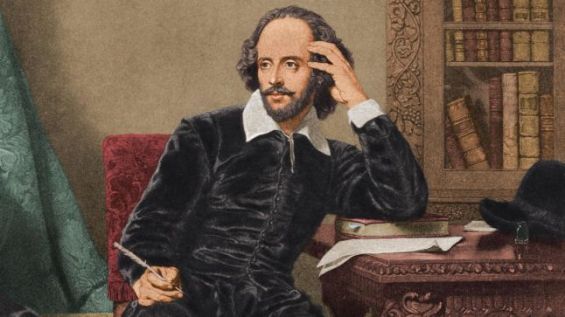Circa 1600, Morocco and England decided to strengthen their diplomatic relations through a series of commercial agreements. The mutual enmity both Queen Elizabeth I and Sultan Ahmed al-Mansour of the Saadi dynasty held for Spain, made this union come true. Sending diplomatic delegations back and forth, the Anglo-Moroccan alliance was established giving birth to an emblematic literary work signed by William Shakespeare.
Years after Portugal was defeated in the Battle of the three kings in 1578, the Saadi sultan and the Queen of England were ready to collaborate. «Political relations were strengthened as a result of reciprocal diplomatic missions and were crowned with an Anglo-Moroccan alliance against Spain in the reign of Philip II», wrote Moroccan historian Khalid Ben-Srhir in «Britain and Morocco during the embassy of John Drummond Hay 1845-1886» (2005, Routledge Curzon, translated by Malcolm Williams and Gavin Waterson).
A Moroccan diplomat in London
However to conclude the above-mentioned agreement, Ahmed al-Mansour sent his principal secretary who became later ambassador to the court of Queen Elizabeth I of England in 1600. Lawful to the orders of the Saadi sultan, Abd el-Ouahed ben Messaoud ben Mohammed Anoun visited London alongside a delegation which sailed to promote the new alliance and negotiate a joint invasion of Spain.

With 16 diplomatic officials from the North African dynasty, the ambassador arrived in Dover, a town and port in South East England. During his six-month stay in England, ben Messaoud met the queen only twice, most precisely on the 19th of August and again on the 10th of September. However, his visit to London was a chance for the Moroccan senior official to discover the city and be noticed as a distinguished Moor that looked nothing like what the British expected.
Inspiring Shakespeare
«The Africans stayed in England for six months, giving them the opportunity to attend the festivities that marked the anniversary of the Queen’s coronation in November 1600», wrote the British Library in an article entitled «Portrait of the Moorish Ambassador to Queen Elizabeth I».
The ambassador’s mission to the Kingdom had apparently inspired the Elizabethan play writer, William Shakespeare. Researchers suggest that the Saadi diplomat has influenced the writings of the British poet, pushing him shortly after this visit to write «Othello», a tragedy play believed to have been issued in 1603.
«The Embassy took place a year or so before the agreed date of 'Othello'» which «provides an ocular proof of what the Elizabethans saw as a Moor of rank», said Art UK in an article dedicated to ben Messaoud.
Although this version of the story remains questionable, British Library suggests that the Moroccan delegation led by ben Messaoud «remained in England over Christmas, which has led some critics to speculate that they may have witnessed a performance by Shakespeare’s company of players – the Lord Chamberlain’s Men – as part of the season’s celebrations». Moreover, the same source explains that «if so, Shakespeare would have had the chance to see the impressive North African party».

For other interpretations, ben Messaoud is Othello, the moor the Elizabethan play is based on. The same account was supported by a Telegraph article published in 2012 : «It is hard not to imagine that this turbaned military leader with his dignified presence did not linger on in Shakespeare’s imagination when he wrote Othello a few years later».
It is, however, evidenced how this Moroccan diplomat was a fascination to the British at the time. An oil painting was dedicated to remember the ambassador. The portrait signed by an unknown painter shows Abd el-Ouahed ben Messaoud ben Mohamed Anoun standing with his right hand on his chest and his sword held by his left hand.
The painting is now held by the Shakespeare Institute in Stratford Upon Avon which is part of the University of Birmingham.




 chargement...
chargement...












